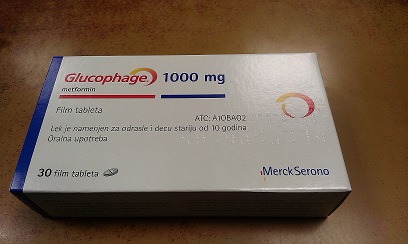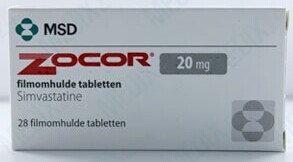Contents
What type of drug is Metformin?
Metformin is a Generic name for a drug with antihyperglycemic properties that is used for treating non – insulin – dependent diabetes mellitus.
This drug can improve glucose levels in blood by decreasing the production of glucose in liver, decreasing intestinal absorption of glucose and increasing insulin-mediated glucose uptake.
Therapy with metformin may also decrease the risk of having a stroke, heart attack, or other diabetes-related complications. Metformin can induce weight loss and that’s why it is the drug of choice for obese patients with diabetes type two.
When it is used alone, this drug doesn’t cause hypoglycemia as side effect; but, it may potentiate the hypoglycemic effects of sulfonylureas drugs and insulin if they are used together. Metformin is available in the form of tablet in following dosage forms: 500, 750, 850 and 1000 mg. It is usually taken during meals.
Common Brand names on the market containing metformin as an active ingredient are: Glucophage, Glumetza, Glucophage XR, Fortamet, Metformin Sandoz, Diabex, Diaformin, Siofor, Metfogamma and Riomet.

What is Zocor used for
Zocor is a Brand name for a drug that contain simvastatin as an active ingredient which belongs to a group of drugs called HMG CoA reductase inhibitors, also known as “statins.”
Simvastatin works by reducing the levels of “bad” cholesterol – LDL (low-density lipoprotein), and triglycerides in the blood, while increasing levels of “good” cholesterol – HDL (high-density lipoprotein).
It is also used to reduce the risk of heart attack, stroke and other heart complications in people with diabetes, coronary heart disease, or other risk factors. Zocor is used in adults and children who are at least 10 years old.
Other Brand names for drugs containing simvastatin as an active ingredient are: Cholestat, Lipex, Sinvacor, Sivastin, Sorfox and Statex.

How does Metformin and Zocor work in the body?
Metformin reduces glucose levels in blood by decreasing the hepatic glucose production and intestinal glucose absorption, and by improving cell sensitivity to insulin by increasing peripheral uptake of glucose and utilization.
These effects are mediated by the initial activation of AMP-activated protein kinase which is a liver enzyme that plays a significant role in insulin signalization, energy balance, and the metabolism of glucose and lipids.
Activation of AMP- protein kinase is needed for inhibitory effect of metformin on liver cell production. Increased peripheral utilization of glucose is caused by improved insulin binding to its receptors.
Metformin administration also increases AMP- protein kinase in skeletal muscle cells. AMP- protein kinase is known to cause deployment of GLUT-4 to the cell plasma membrane, which results in insulin-independent glucose uptake.
The rare side effect called lactic acidosis can be caused by decreased liver uptake of lactate, which is one of the substrates of gluconeogenesis. Patients who have healthy renal function, the slight excess are simply cleared.
However, patients who have severe renal impairment the accumulation of lactic acid can be clinically significant. Conditions such as severe hepatic disease and acute/decompensated heart failure may precipitate lactic acidosis.
Simvastatin is a lipid-lowering drug that is synthetically derived from the fermentation of fungi Aspergillus terreus. It is a potent competitive inhibitor of 3-hydroxy-3-methylglutaryl coenzyme A reductase, rate-limiting enzyme in biosynthesis of cholesterol.
Interference with this enzyme activity reduces the quantity of mevalonic acid, a precursor of cholesterol. It may also interfere with steroid hormone production. Due to the induction of hepatic LDL receptors, it increases breakdown of LDL cholesterol.
Can patients take Metformin and Zocor together?
Many doctors will prescribe this combination in diabetics with high cholesterol levels and increased risk of heart and coronary complications.
There are no direct interactions between Metformin and Zocor, and studies have showed that statin therapy significantly reduces cardiovascular events among individuals with and without a history of diabetes compared with placebo.
However, new findings suggest that higher doses of statins can induce diabetes in predisposed patients, by increasing glucose levels in blood. Women and elderly persons appear to be at increased risk.
Some experimental studies support the theory that statins may cause diabetes melitus by altering glucose homeostasis through both reduced insulin sensitivity and impaired insulin secretion.
Recent study reported that among patients treated with statins, the risk of developing diabetes was 9% higher over a 4-year period compared with patients randomized to placebo or standard care.
Studies have also found that hat those who were receiving the highest dose of statins developed greater insulin resistance, higher insulin levels, and higher hemoglobin A1c compared with those receiving the lowest statin dose or placebo, suggesting a potential dose effect.
Various aspects of statin’s side effect on glycemic control have to be explored. As further research continues, health professionals might still take some precautions to make risk benefit ratio more favorable for the patients.
The table below shows the incidence of side effects after Metformin and Zocor administration in recommendable doses. The incidence can be increased if these drugs are taken together or overdosed.
| Frequency not defined | Asthenia, Diarrhea, Flatulence, Weakness, Myalgia, Upper respiratory tract infection, Hypoglycemia, GI complaints, Lactic acidosis (rare), Low serum vitamin B-12, Nausea/vomiting, Chest discomfort, Chills, Dizziness, Abdominal distention, Constipation, Heartburn, Dyspepsia, Nasopharyngitis, Headache, Peripheral edema, Pharyngitis, Osteoarthritis, CPK elevation, Transaminases increased, Upper respiratory infection, Constipation, Flatulence, Myalgia, Eczema, Abdominal pain, Vertigo |
Special precautions and warnings during Metformin and Zocor administration:
- Patients should tell their doctor and pharmacist if they are allergic to Metformin or Zocor, or any other medications, or any of the ingredients in these products.
- Patients should tell their doctor and pharmacist what prescription and nonprescription medications, nutritional supplements, vitamins and herbal products they are taking or plan to take. Patients using Metformin should mention if they are using any of the following drugs: digoxin, insulin, acetohexamide, chlorpropamide, glimepiride, glipizide, glyburide, tolazamide and tolbutamide. Doctor may need to change the doses of these medications or monitor carefully for side effects.
- Before using Metformin, patients should tell their doctor or pharmacist their medical history, especially if they ever had or have: breathing problems such as obstructive lung disease and asthma, blood problems such as anemia or vitamin B12 deficiency, kidney or liver disease.
- Patients should tell their doctor if they are pregnant, plan to become pregnant, or are breastfeeding. If they become pregnant while using Zocor or Metformin they should call a doctor. Pregnant patients should use Metformin only when it is clearly needed. Patients should discuss the risks and benefits with their doctor. Doctor may direct to use insulin instead of metformin during pregnancy.
- Patients should tell their doctors that they are using metformin before having surgery or any X-ray scanning procedure that use injectable iodinated contrast material.
- Patients may experience blurred vision, drowsiness or dizziness, or due to extremely low or high blood sugar levels. They should not drive, use machinery, or do any activity that requires alertness or clear vision until they are sure that they can perform such activities safely.
- Patients should limit the usage of alcohol while using these medications because alcohol can increase the risk of lactic acidosis and low blood sugar can be developed.
- High fever, diuretic such as hydrochlorothiazide, too much sweating, prolonged diarrhea, and vomiting may cause dehydration and increase the risk of lactic acidosis. Patients should stop taking metformin and tell their doctor if they have prolonged diarrhea or vomiting.
- Geriatric patients may be at higher risk for side effects such as low blood sugar or lactic acidosis.
- Metformin can make changes in the menstrual cycle, such as promote ovulation and this drug may also increase the risk of becoming pregnant.
- Metformin can pass into breast milk, but only in small amounts. Patients should consult their doctor before breast-feeding.
- Patients should talk with their doctor if they get hurt or develop a fever or infection. These conditions may affect blood sugar levels.
- In rare cases, simvastatin can cause a serious condition that result in skeletal muscle tissue breakdown, leading to kidney failure. Patients should call doctor immediately if they experience unexplained muscle pain, tenderness, or weakness especially if they also have unusual tiredness, fever and dark colored urine.
- Before taking Zocor, patients should tell their doctor if they have ever had kidney or liver disease thyroid disorder or diabetes if they are Chinese descent, or if they drink more than 2 alcoholic beverages daily.
- Grapefruit and grapefruit juice may interact with simvastatin leading to potentially dangerous effects. Patients should not consume grapefruit products while taking Zocor.
“Drug interaction between Heparin and Aspirin“
“Equagesic (Meprobamate and Aspirin) Drug Information“
